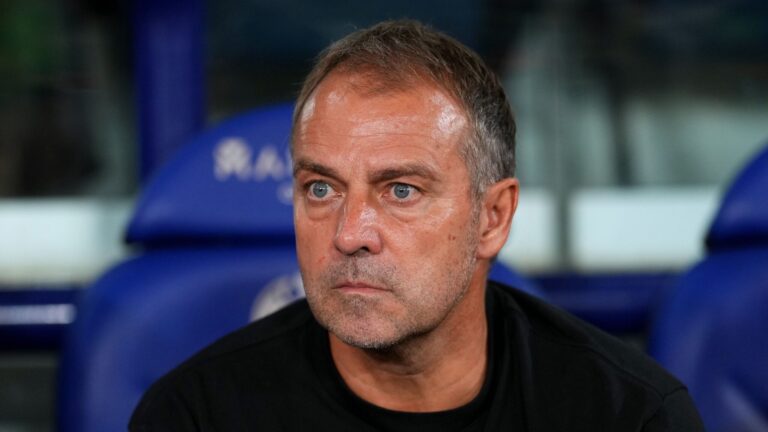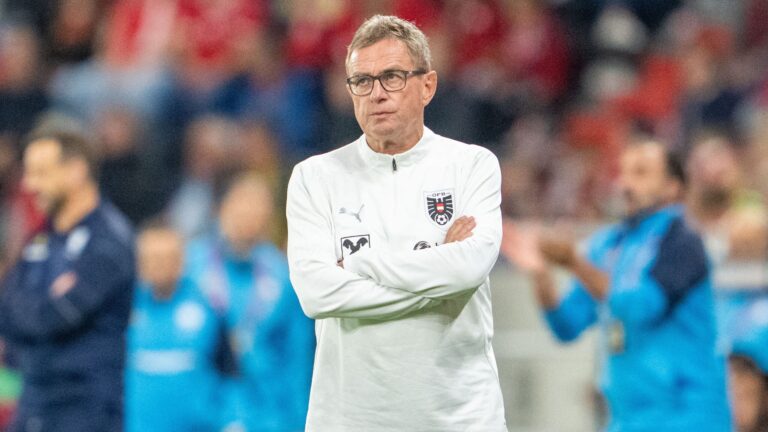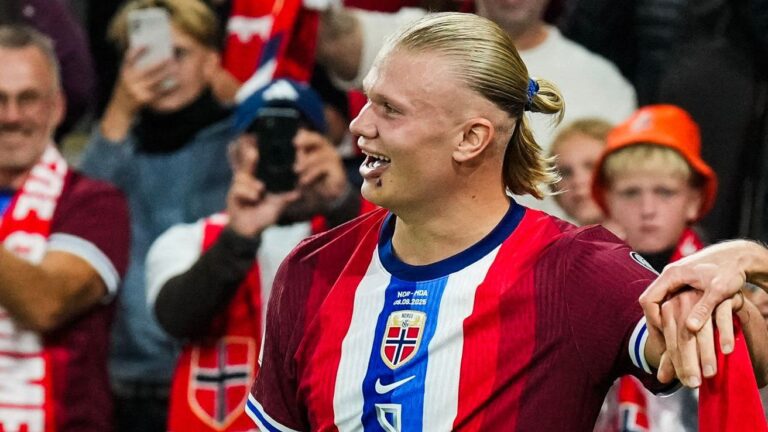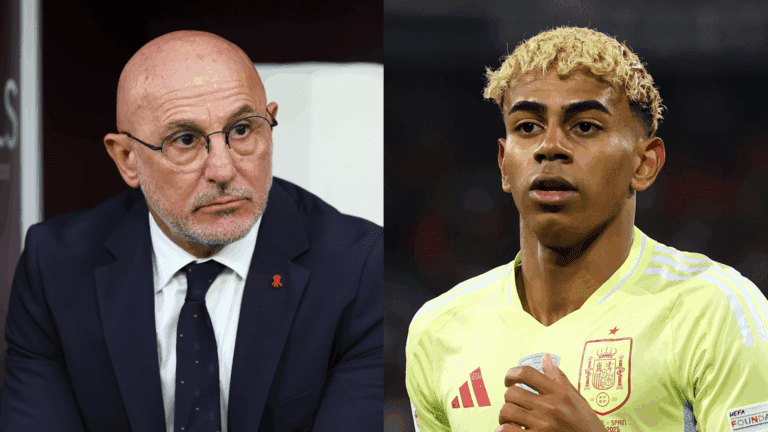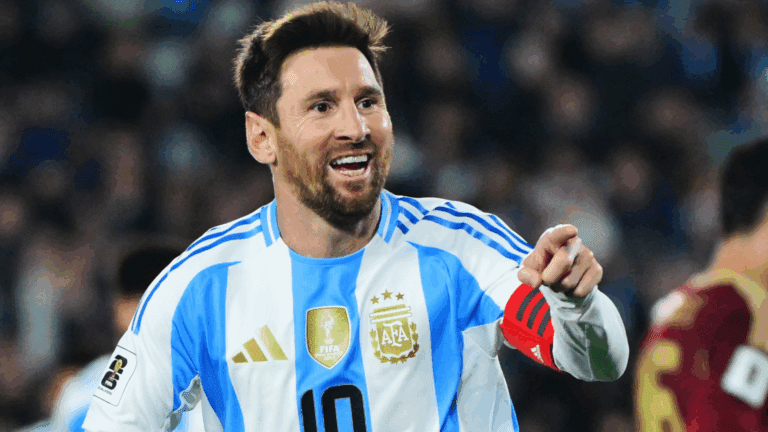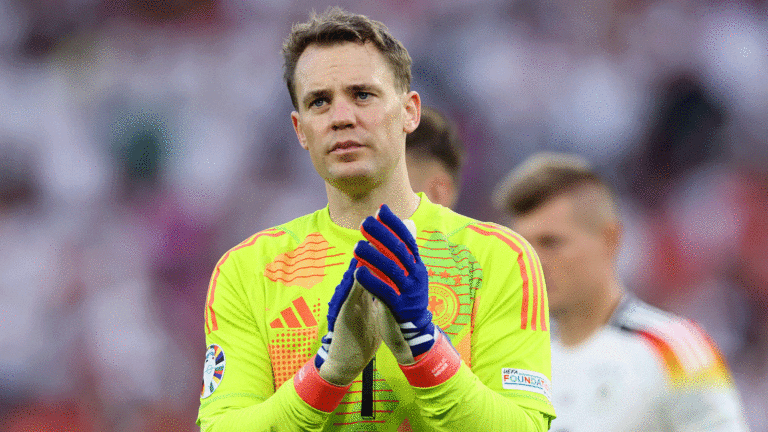USMNT’s Struggles Under Pochettino: A Wake-Up Call After South Korea Defeat
In a bold critique of the USMNT‘s recent setbacks, analyst Herculez Gomez has voiced strong concerns about the team’s direction under manager Mauricio Pochettino. Following their 2-0 loss to South Korea, Gomez argues that these performances reveal deeper issues in strategy and player choices, potentially jeopardizing the team’s prospects for upcoming international competitions. With the 2026 World Cup on the horizon, this pattern of shortcomings against elite opponents highlights the urgent need for tactical evolution and better talent assessment.
- Gomez highlights the USA’s disappointing display
- He notes a troubling trend of defeats against teams ranked in the top 30 worldwide
- Critic questions Mauricio Pochettino’s approach to assembling the squad



Examining the USMNT’s Ongoing Challenges Against Top-Ranked Teams
Gomez was outspoken about the USMNT‘s lackluster effort against South Korea, describing it as a complete letdown and emphasizing how Mauricio Pochettino’s squad repeatedly falters when facing skilled adversaries. South Korea showcased their superior skill set, marked by precise execution, structured play, and a clear vision on the field, which exposed gaps in the American team’s speed, resolve, and creativity in key moments.
A Deeper Look at Persistent Shortfalls
This defeat isn’t an isolated incident; Gomez draws attention to a broader issue that stretches beyond a single game, focusing on the team’s consistent struggles against teams in FIFA’s top 30. Under Pochettino, who has been at the helm for nearly a year, the USMNT has now suffered seven losses to such opponents, up from previous estimates and mirroring a growing trend observed in recent friendlies. Examples include setbacks against Mexico, Panama, Canada, Turkey, Switzerland, and most recently South Korea, underscoring a lack of progress that could impact their global standing.
Scrutinizing Pochettino’s Tactics and Choices
In addition to the results, Gomez raises doubts about Pochettino’s overall strategy, pointing out the absence of noticeable enhancements in gameplay and questioning the rationale behind his lineup decisions. He notes that the USMNT has dropped six home games in a calendar year for only the fourth time ever, a statistic that’s climbed due to recent poor form and serves as a red flag for fans and experts alike. At its core, this reflects a squad that lacks a defined playing style, making it hard to pinpoint their on-field identity under the current leadership.
The Absence of a Cohesive Game Plan
Gomez expresses frustration over the team’s inability to establish a reliable formation or approach, suggesting that without a solid foundation, victories against stronger teams remain out of reach. If asked to describe the USMNT‘s system today, many observers might struggle, highlighting how this uncertainty has persisted and even worsened. While Pochettino bears significant responsibility, external factors like limited training time in national camps amplify these problems, as updated reports from recent international fixtures indicate a dip in team cohesion compared to earlier cycles.
Pochettino’s Vision Amid Growing Criticism
The South Korea outcome has solidified Gomez’s long-held reservations about the USMNT‘s path under Pochettino, particularly his skill in evaluating and selecting talent. According to Gomez, Pochettino’s instincts for building a roster fall short, especially in this high-stakes environment where short camps limit the ability to refine tactics. With emerging data showing that top teams are increasingly prioritizing innovative scouting methods, the USMNT risks falling behind without immediate adjustments.
In response to the backlash, Pochettino has reiterated his commitment to a long-term strategy aimed at World Cup readiness, rather than fixating on friendly match outcomes. “We’re all aligned on our goals and staying true to them,” he stated, emphasizing competitiveness while acknowledging the ongoing development process. “Our focus is on preparing players to peak at the right time, drawing from our experience to build a competitive edge.”
What’s Next for the USMNT?
After the defeat to South Korea, the USMNT is set to take on Japan in their upcoming match in Columbus, Ohio, offering another chance to address these issues and demonstrate improvement. As current rankings and performance metrics suggest a need for swift changes-such as integrating more dynamic players from emerging leagues-the team’s ability to adapt will be crucial in reshaping their narrative on the international stage.
Overview of Herculez Gomez’s Criticism
Herculez Gomez, the former USMNT forward turned soccer analyst, has been vocal about his dissatisfaction with Mauricio Pochettino’s approach to talent evaluation and tactical decisions during the USMNT’s recent disappointing match against South Korea. This criticism isn’t just idle chatter; it stems from Gomez’s deep experience in the game, highlighting potential flaws in how Pochettino is steering the team. For fans following USMNT performance and Pochettino’s tactics, Gomez’s insights offer a fresh perspective on why the team struggled in that key friendly.
Gomez pointed out that Pochettino’s talent evaluation process seems misaligned with the strengths of the current USMNT squad. In the match against South Korea, which ended in a surprising defeat, Gomez argued that key players weren’t utilized effectively, leading to a lackluster performance. Keywords like “Herculez Gomez criticism” have been buzzing in soccer forums, as analysts and fans dissect whether Pochettino’s strategies are hindering the team’s progress.
Herculez Gomez’s Background and Expertise
To truly appreciate Gomez’s critique, it’s helpful to know his roots. As a former player who represented the USMNT in major tournaments, Gomez brings a wealth of first-hand experience to the table. He scored crucial goals for the national team and has since transitioned into a respected commentator, offering insights into USMNT vs South Korea match dynamics and beyond.
Gomez’s commentary often draws from his playing days, where he witnessed the highs and lows of team tactics under different coaches. In this case, he shared a case study from his own career: during his time with the USMNT, coaches who misjudged player fit often led to on-field confusion, much like what he observed in Pochettino’s lineup choices. This personal anecdote underscores why Gomez’s views on Pochettino’s talent evaluation resonate with many, emphasizing the need for coaches to adapt to the unique attributes of American players.
Issues with Pochettino’s Talent Evaluation
One of the core elements of Gomez’s criticism centers on Pochettino’s talent evaluation methods. During the USMNT’s match against South Korea, Pochettino opted for a formation that didn’t play to the strengths of players like Christian Pulisic or Weston McKennie. Gomez argued that this reflects a broader issue in how Pochettino assesses player roles, potentially overlooking the high-energy, versatile style that defines USMNT soccer.
For instance, Gomez highlighted how South Korea’s midfield dominated due to Pochettino’s failure to rotate players effectively. This isn’t just about one game; it’s a pattern that could affect USMNT performance in upcoming World Cup qualifiers. To make this more relatable, imagine evaluating talent like building a team puzzle-if pieces don’t fit, the picture falls apart, which is exactly what Gomez sees happening under Pochettino’s watch.
Key Examples from the Match
Diving deeper, let’s look at specific moments. In the first half, Pochettino’s decision to bench certain attackers meant the USMNT lacked the creativity needed to break down South Korea’s defense. Gomez dissected this on his platform, noting that better talent evaluation could have involved starting players with proven chemistry, as seen in previous USMNT victories. These tactical oversights, according to Gomez, stem from a rigid evaluation system that doesn’t account for emerging talents in the MLS or European leagues.
Tactical Decisions That Fell Short
Gomez didn’t hold back when discussing Pochettino’s tactical decisions in the match. He criticized the high-press strategy, which exposed defensive vulnerabilities against South Korea’s counterattacks. This approach, while effective in Pochettino’s tenure at clubs like Tottenham, didn’t translate well to the international stage with the USMNT.
From a practical standpoint, Gomez suggested that coaches should prioritize adaptability in tactics, especially against teams like South Korea that excel in quick transitions. For example, he pointed out how Pochettino’s insistence on a 4-3-3 formation led to overcrowding in the midfield, allowing South Korea to exploit gaps. This criticism ties back to broader discussions on tactical decisions in international soccer, where flexibility can make or break a team’s success.
Practical Tips for Improving Tactical Choices
While we’re on the topic, let’s explore some practical tips that could help coaches like Pochettino refine their strategies. First, conduct thorough scouting reports to evaluate how players perform under pressure, much like Gomez recommends based on his experiences. Second, incorporate rotation based on opponent strengths- for the USMNT, this might mean adjusting formations to counter fast-paced teams. Finally, seek input from former players for real-time feedback, turning criticism into constructive growth.
Case Study: The Ripple Effects on USMNT
As a case study, consider how this match against South Korea could influence USMNT’s future. Gomez’s analysis suggests that ongoing issues with talent evaluation and tactics might lead to more disappointing results, potentially affecting morale and fan engagement. In contrast, teams like England have thrived by addressing similar critiques early, showing the benefits of heeding expert opinions.
Gomez’s first-hand experience as a player adds weight here; he recalls how timely tactical adjustments turned losses into wins during his era. By examining this case, we see the importance of evolving strategies to maintain USMNT’s competitive edge in global competitions.
Benefits of Constructive Criticism in Soccer
Finally, constructive criticism like Gomez’s brings several benefits. It fosters transparency in coaching decisions, encourages player development, and ultimately strengthens team performance. For USMNT fans, this means more informed discussions and a push for better results, ensuring the team’s tactics align with their talent pool for long-term success.


